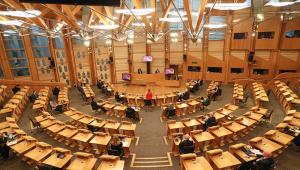The 2017 General Election was an unusual one on many levels: not just in its unexpected result, but also the unique context in which it took place, with the Article 50 clock ticking and a campaign that was twice suspended as terrorists struck innocent victims first in Manchester and then in London.
While the Brexit negotiations will dominate immediate political debate, it will not be long before the new government focuses its attention to the challenges of tackling extremism and the linked issue of improving integration in our society.
Renewed attention to integration is long overdue. Britain is a more anxious and fragmented society than any of us would want. The EU referendum vote split the country by place, by generation and by social class.
Britain’s multi-ethnic, multi-faith society is in many places an integration success story but it is one with important challenges and tensions too, including concerns about segregation, extremism and prejudice.
Yet progress has been restricted by a lack of leadership from the top of politics and it is remarkable that we have never had a properly-implemented integration strategy in this country.
The government now has a chance to address this as it responds to the Casey Review, which identified some of the places where people have become cut-off from mainstream society.
While that strategy will want to explore how better integration can play an important role in protecting British society and its citizens from extremism, its scope should be broader too: looking at the divisions that Brexit exposed and at the barriers to new arrivals in Britain becoming a full part of our shared society.
We should also look more broadly than national government to address the challenges of integration.
New mayors in six city-regions across England represent nearly 10m people between them. They have an opportunity to develop more prominent leadership for cities and regions.
They can also bring fresh impetus to the debate on integration - showing national government that it can be done and done well, with the support of local residents of all faiths and ethnic backgrounds.
Appointing a deputy mayor for integration, tasked with championing integration and leading an Office for Integration and Citizenship to help catalyse action, would show that the new mayor takes this seriously. Such offices and appointments have been successful in cities from New York and Chicago to Barcelona and Hamburg and, most recently, in London too.
The deputy mayor’s job should include the mainstreaming of integration across the combined authority and different policy areas; but also encouraging, championing and catalysing a broader civic ownership of integration.
Involving police, faith communities and civic groups, schools, colleges, universities and local businesses will be crucial to getting the integration agenda right. They should also involve the public in this conversation from the start, helping the new mayor to develop an integration strategy that feels relevant to people right across their region.
Integration programmes will differ in each city-region, but with all six new mayors controlling the adult skills budget, improving English language provision is likely to be a focus.
Skills training programmes can help to address economic inequalities; and greater efforts will be needed to encourage more contact and mixing between people from different backgrounds, whether that is at an early age in schools or later through volunteering projects.
Integration matters to all of us. If the new mayors can show leadership in making change happen in their own cities and regions, they will also have a stronger voice as champions who can help us to shift towards the positive, active integration agenda that we need at a national level too.
Steve Ballinger is director of communications for British Future, an independent thinktank, and co-author of Integration: from national rhetoric to local reality.




















